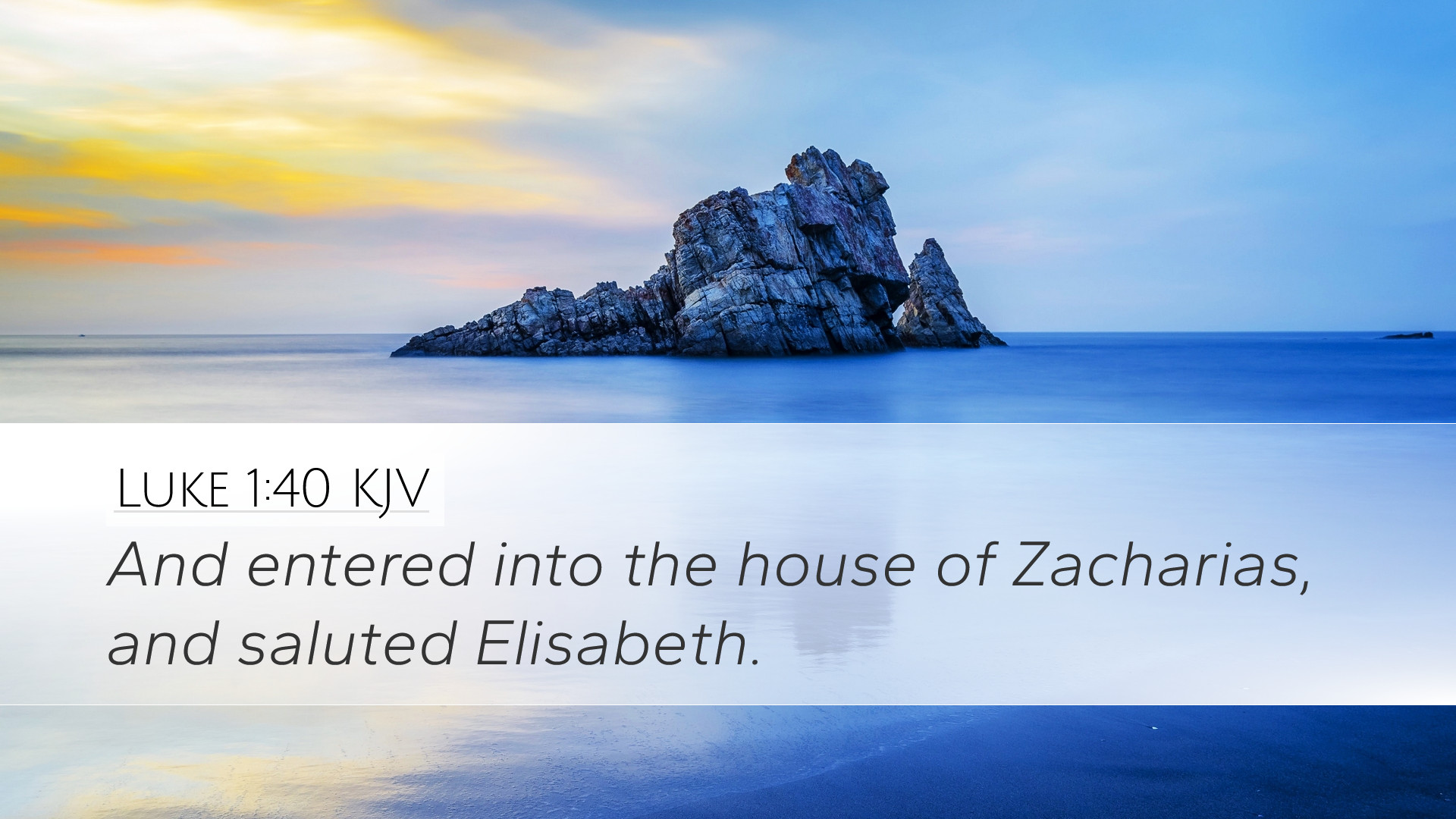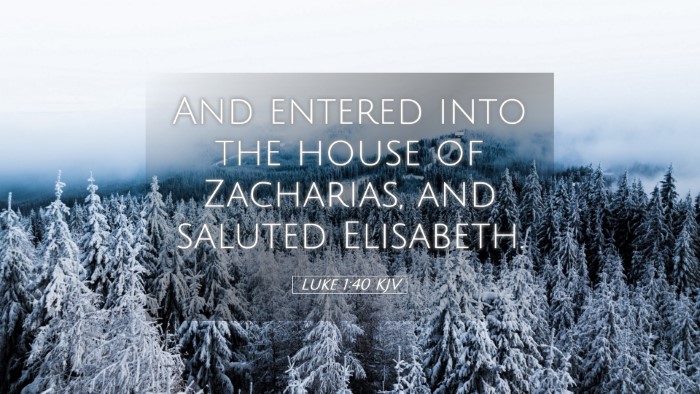Commentary on Luke 1:40
Luke 1:40 states, "And entered into the house of Zacharias, and saluted Elizabeth." This brief yet profound verse opens up a wealth of insights into the early life of Christ and the significant roles played by both Mary and Elizabeth. As we delve into this scripture, we draw upon the doctrines and exegesis presented by esteemed theologians, such as Matthew Henry, Albert Barnes, and Adam Clarke.
Contextual Analysis
To fully appreciate the implications of this passage, it is essential to consider its context. Mary has just received the announcement of her miraculous conception by the angel Gabriel. Eager to confirm the message she received regarding her cousin Elizabeth, who was also experiencing a miraculous pregnancy, Mary journeys to Elizabeth's home (Luke 1:36).
Mary's Visit
Matthew Henry emphasizes the significance of Mary’s visit. He notes that Mary immediately obeyed the divine directive she received. Her hastiness to Elizabeth reflects her sincere desire for confirmation and communion, showcasing her fervent faith and readiness to serve (Henry, Matthew. Matthew Henry's Commentary).
Albert Barnes comments on the nature of the interaction between Mary and Elizabeth. He suggests that Mary’s presence and the greeting she offered were not mere formalities, but infused with the expectation of divine significance. This visit serves as a moment of profound connection between two vessels chosen by God to fulfill His redemptive purposes (Barnes, Albert. Barnes' Notes on the New Testament).
The Spiritual Significance
Adam Clarke provides an insightful reflection on the thematic implications of the verse. He discusses how this visit signifies the union of two important maternal roles: that of Mary, the mother of Jesus, and Elizabeth, the mother of John the Baptist. This conjunction in their pregnancies symbolizes the coming together of the law and grace; John publicly heralds the coming of the Messiah, fulfilling ancient prophecies (Clarke, Adam. Clarke's Commentary on the Bible).
Faith and Assurance
The visit between Mary and Elizabeth highlights a profound moment of mutual affirmation in faith. Both women experienced divine interventions, yet they were at different stages in their journeys. Henry posits that this interaction serves to reassure Mary and provide her with courage, understanding that she was not alone in her divine calling (Henry, Matthew).
Lessons for Believers
-
Collaboration in Faith: The meeting signifies the importance of fellowship among believers. Just as Mary sought Elizabeth, Christians are called to support one another in their spiritual journeys.
-
Confirmation of God’s Word: The encounter reassures that God's promises manifest through community, as Elizabeth confirms Mary's miraculous conception with her own experience.
-
Embracing God's Will: Mary's immediate response to God's call exemplifies obedience and willingness to embrace divine tasks without hesitation.
Conclusion
Luke 1:40, though a brief verse, encapsulates key themes of obedience, mutual encouragement in faith, and the dramatic fulfillment of God’s plan through ordinary lives. Both Mary and Elizabeth illustrate that God's redemptive narrative involves human cooperation. Their example serves as a powerful reminder to pastors, theologians, and believers today of the importance of community and faithfulness in the face of divine calling.


